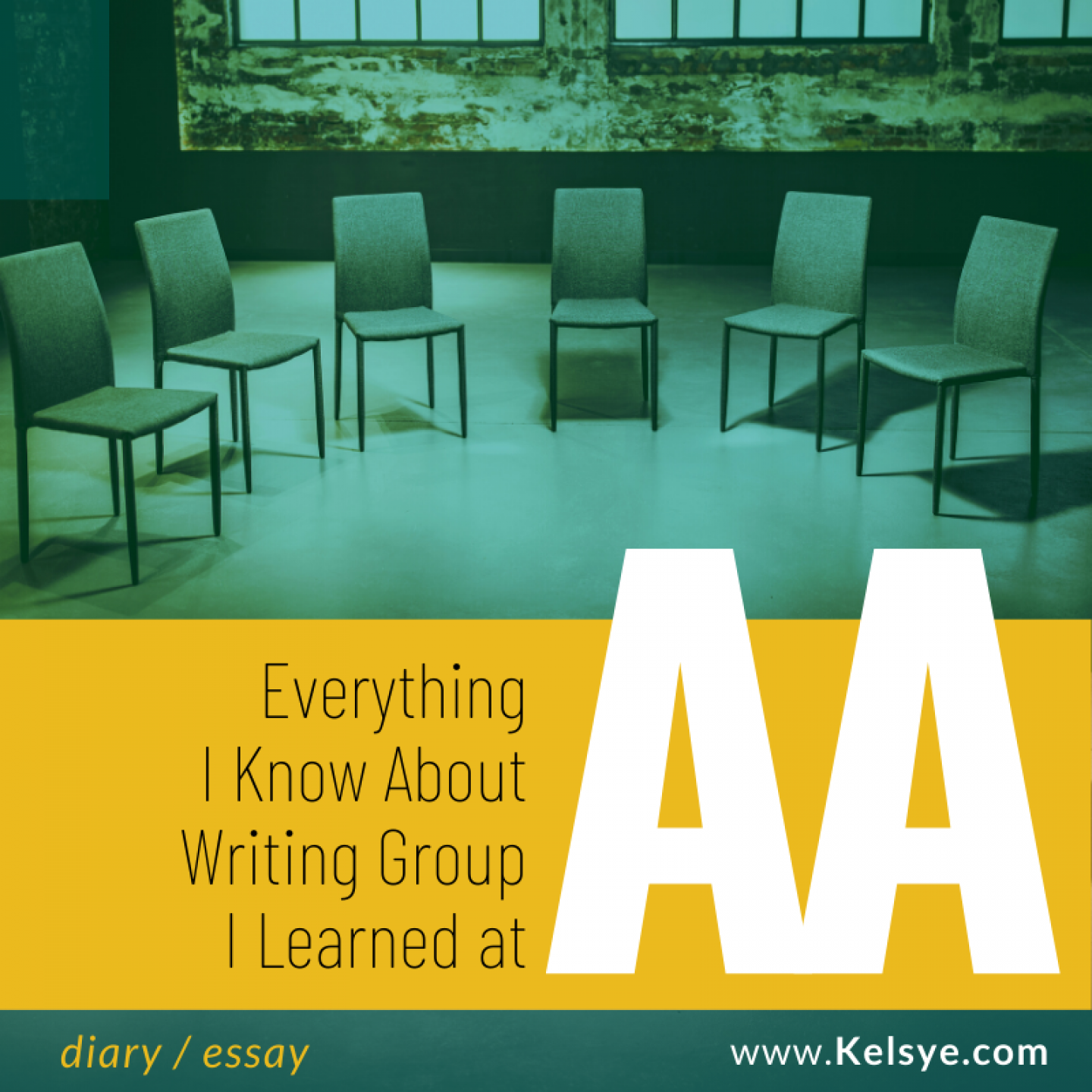
An alcoholic family lives by three rules, don’t talk, don’t feel and don’t trust. We were breaking each and every one of them and my mother was not pleased. My sister sobbed, gripping tight on my arm. My step father placed his head in his hands, quiet. I looked at my mom, turned up my palms and asked with voice soft as downy, “Why won’t you go?”
“I won’t be bullied,” she said. She crossed her arms over her chest, but her lower lip trembled like a toddler’s on the verge of melt-down.
My sister choked back her sobs and looked at me. It was over. Our month-long planning for this intervention failed us. All those hours with the drug and alcohol counselor. All that research. All those phone calls with the health insurance representative getting prior approvals. Wasted. That bag with ten-days worth of rehab distractions we carefully packed was going to remain by the door until one of us unzipped it and put everything back from where we’d gotten it. No long car drive for our family today.
Later, unable to sit still all evening with my own household of sweet souls completely innocent of the struggles of a family diseased as the one I come from, I got into my car and drove to the closest al-anon meeting.
When I walked into the room at the Friday night meeting on Capital Hill, alarm bells sounded in my head.
“Welcome!” said a man with too-tight, lavender pants and a shiny bouffant.
“Hel-lo,” I said, drawing out the word while surveying the room packed entirely with men. Very stylish men. Very fit men.
I sat in the seat closest to the door. I simply found the al-anon meeting closest to me that started within the next hour. I hadn’t bothered to check if it was a meeting for a defined group. I’d seen groups just for women. Had I stumbled into a meeting just for gay men?
The man with the lavender pants took the seat on my right and winked, trespass forgiven.
The men took turns sharing their stories, all earnest, all familiar. The writer in me reveled in the narratives; the gay man accidentally shacked-up with his dying father’s female caregiver because he felt responsible for taking care of her, the firefighter who keeps falling for meth-heads, stuck in a rescue pattern that leaves him burned. The man whose partner is out right now, in bars, doing God knows what with God knows who.
I told the story of my mother. I cried. All those eyes locked on me, watered.
“She wouldn’t get in the car. No matter what we said, no matter what we did.”
When we get to the part where we join hands and say the serenity prayer, I already know the words. They come to me without effort. God grant me… From the ages of about seven to ten, I was a fixture in my father’s AA meetings. The people were nice and friendly. One regular took on the moniker “The Butterscotch Man” for the hard candies he brought expressly for me. I loved AA. I love al-anon. It feels like writing group.
At my writing group, we greet each other with warm words, sit in click-clacking solidarity, tell stories to our screens and notepads. Often, writing group is the only intersection of our busy lives, the rest of our days unseen and unknown to each other. Anonymous. No matter. All those little hours of support through proximity over the years add up to a sort of family culture that satisfies me deeply. If I ever fall to the disease of my parents, or some new one of my own discovery, and disappear from the world, I know one of these people will eventually come knock at my door and ask where I’ve been. I stretch that safety net across the back of my mind.
Tomorrow is my birthday. My mom has sent me flowers a check much more generous than prior years. Guilt stabs at me when I rush to the back to deposit it into my depleted account. Payoff money.
“Hi, Mom. Thanks for the flowers and generous check,” I say in our first phone call since that Friday when she crossed her arms and told us no.
“Happy birthday, I love you sweetie.”
“I love you too, Mom. I really do.”
I usually fill our conversations with updates about my daughter, or showcasing some new accomplishment I’d like her to admire and approve. Now, I let the silence seep in. She stays quiet as the seconds tick by. Now that we’ve broken through the old rules, going back to the way things were before strikes me as entirely unbearable. I talk.
“Tell me again,” I say. “Why.”
Mom huffs a deep breath into the phone. I know she is scowling and pursing her lips, even though I can’t see it.
“You have the power, Mom. You have complete control.”
No response.
“Okay. I love you, Mom. I’ll call you next week.”
“Love you too.” Her voice seems smaller, father away.
The subject of my sister’s email has just one word, outpatient. I open it on my phone, unwilling to wait until I get home to read it. She admitted herself today, her message reads. It’s not in-patient, but it’s three hours a day for ten days. She went completely on her own. I smile.
God grant me…
Author's note: How strange it is to share this piece while at the same time promoting a book that glamorizes drinking.






